What Are BPD Vs Bipolar?
BPD (Borderline Personality Disorder) and Bipolar Disorder are two distinct mental health conditions that can significantly impact a person’s life. Here’s a brief overview of each:
Borderline Personality Disorder (BPD)
Borderline Personality Disorder is a complex mental health condition characterized by intense and unstable emotions, relationship difficulties, and a distorted self-image. People with BPD often experience extreme fear of abandonment, have impulsive behaviors, engage in self-harming actions, and struggle with mood swings.
They may also tend to see things in black and white, have chronic feelings of emptiness, and experience difficulties regulating their emotions. BPD typically develops in early adulthood and can lead to challenges in various areas of life, including work, relationships, and self-esteem.
Bipolar Disorder
Bipolar Disorder, formerly manic-depressive, is characterized by alternating periods of extreme highs (mania) and lows (depression). Individuals with Bipolar Disorder experience elevated mood, increased energy levels, and impulsive behaviors during manic episodes.
These episodes are followed by intense sadness, hopelessness, and loss of interest during depressive episodes. Bipolar Disorder can significantly affect a person’s daily functioning, relationships, and overall quality of life. It often requires long-term management and treatment to help individuals stabilize their moods and prevent relapses.
While both BPD and Bipolar Disorder involve mood dysregulation, they differ in the duration and pattern of mood disturbances. BPD primarily affects emotions, self-perception, and interpersonal relationships, while Bipolar Disorder revolves around distinct episodes of mania and depression. Understanding these differences is crucial for accurate diagnosis and effective treatment planning in mental health rehabilitation.
Difference Between Bipolar And BPD
Bipolar Disorder | Borderline Personality Disorder (BPD) | |
|---|---|---|
| Mood Swings | Distinct episodes of mania and depression | The tendency for impulsive actions in various situations |
| Duration of Mood Episodes | Lasting days to weeks | May change rapidly within hours or days |
| Self-Image | Relatively stable self-image | Unstable self-image and sense of identity |
| Impulsivity | May exhibit impulsive behaviors during manic episodes | It may not be a prominent feature |
| Fear of Abandonment | May not be a prominent feature | Intense fear of abandonment and difficulties in relationships |
| Self-Harming Behavior | Less commonly associated | Higher likelihood of engaging in self-harming actions |
| Relationship Patterns | May experience disruptions due to mood episodes | Difficulty maintaining stable relationships |
| Emotional Regulation | Challenges in regulating emotions during episodes | Difficulty regulating emotions consistently |
| Treatment Approach | Medication, psychotherapy, and mood stabilizers | Dialectical Behavior Therapy (DBT), psychotherapy, and skill-building approaches |
Do I Have BPD Or Bipolar?
Seeking clarity and understanding regarding one’s mental health is crucial for effective treatment and support. For individuals grappling with mood disorders like Borderline Personality Disorder (BPD) and Bipolar Disorder, a specialized BPD and Bipolar Test can serve as a helpful tool in assessing potential symptoms and patterns. However, while this test can provide valuable insights, it should not be considered a replacement for an accurate diagnosis from a qualified mental health professional.
BPD And Bipolar Test
Welcome to the BPD vs Bipolar Test! This test is designed to help you gain a preliminary understanding of whether you may exhibit symptoms more aligned with Borderline Personality Disorder (BPD) or Bipolar Disorder. Please keep in mind that this test is not a substitute for professional evaluation and should be used for informational purposes only.
*By taking this free quiz, you may obtain your results online and in your email box. You’ll have the opportunity to opt-in to learn more about your symptoms, talk to a mental health consultant and join our newsletter. Rest assured your information is private and confidential. Results, consultations and assessment are provided without any cost to you and without any obligation. If you do not wish to provide your contact information, you may omit it during your quiz. Thank you for opting in and participating. To you best of health.
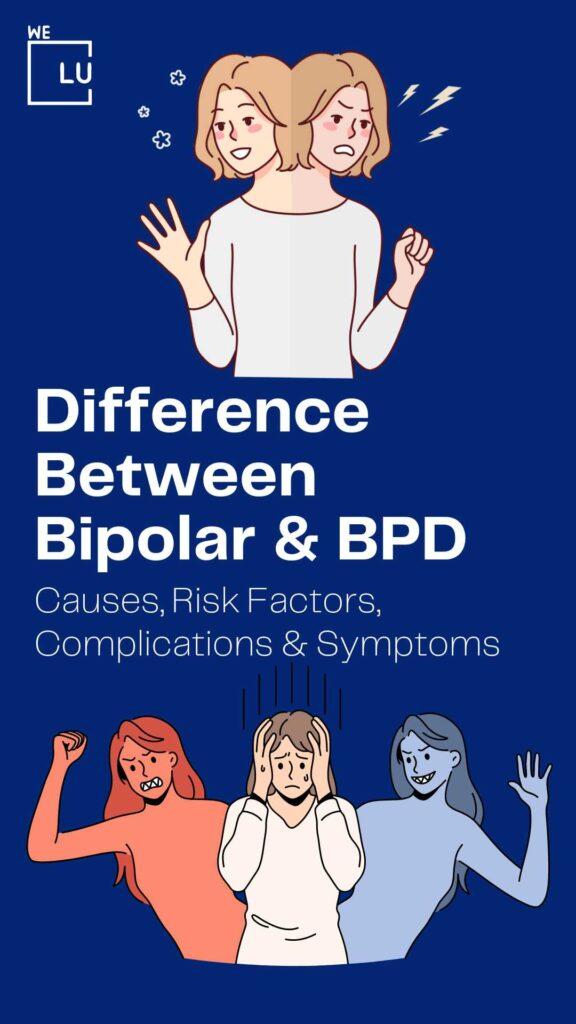
Skip To:
Learn More:
- Schizoid Personality Disorder Symptoms and Causes
- Do I Have Borderline Personality Disorder Quiz
- Quick 3 Minute Paranoid Personality Disorder Test
- Personality Disorder Treatment Centers & Facilities
- Borderline Personality Treatment & Diagnosis
- May is Borderline Personality Month, BPD treatment & Signs
- Do I Have Schizophrenia Quiz? Easy, Free, & Confidential
- Schizophrenia Treatment, Effective Medication Treatments of Schizophrenia & Psychotherapy Treatment of Schizophrenia.
Get Help. Get Better. Get Your Life Back.
Searching for Accredited Drug and Alcohol Rehab Centers Near You?
Even if you have failed previously and relapsed, or are in the middle of a difficult crisis, we stand ready to support you. Our trusted behavioral health specialists will not give up on you. When you feel ready or just want someone to speak to about therapy alternatives to change your life call us. Even if we cannot assist you, we will lead you to wherever you can get support. There is no obligation. Call our hotline today.
(844) 597-1011Popular BPD Vs Bipolar FAQs
-
Which Is Worse Bipolar Or BPD?
It is important to note that comparing the severity of different mental health conditions can be challenging, as their impact varies greatly from person to person. Bipolar and Borderline Personality Disorder can significantly disrupt a person’s life and cause immense distress.
Distinct episodes of mania and depression characterize Bipolar Disorder, while intense emotional instability, relationship difficulties, and a distorted self-image characterize BPD. The severity of symptoms and their impact on daily functioning can vary for individuals with either disorder. It is crucial to consult with a mental health professional for an accurate diagnosis, personalized assessment, and appropriate treatment options tailored to individual needs.
-
Are Bipolar 2 Vs BPD The Same?
Bipolar 2 and Borderline Personality Disorder (BPD) are distinct mental health conditions with unique characteristics. Bipolar 2 Disorder is a subtype of Bipolar Disorder characterized by recurrent episodes of depressive symptoms and hypomanic episodes that are less severe than full-blown mania. Individuals with Bipolar 2 experience significant shifts in mood and energy levels.
On the other hand, BPD is characterized by emotional instability, relationship difficulties, impulsivity, and a fragile sense of self. While both disorders involve mood dysregulation, they have distinct diagnostic criteria and treatment approaches. It is essential to consult with a mental health professional to accurately differentiate between the two conditions and receive the appropriate diagnosis and treatment.
-
Is BPD And Bipolar The Same?
No, BPD (Borderline Personality Disorder) and Bipolar Disorder are different. They are two distinct mental health conditions with different diagnostic criteria, symptoms, and treatment approaches. Bipolar Disorder is characterized by episodic shifts between periods of mania (elevated mood and increased energy) and depression (intense sadness and low energy).
In contrast, BPD is a personality disorder characterized by emotional instability, relationship difficulties, impulsivity, and a fragile sense of self. While both disorders involve mood dysregulation, they manifest differently and require tailored treatment strategies. A qualified mental health professional can provide a thorough evaluation and accurate diagnosis to determine which condition is present and guide appropriate treatment.
Borderline Personality Disorder Vs Bipolar Factsheet
Bipolar Disorder Symptoms
- Mood Episodes: Characterized by distinct episodes of mania/hypomania and depression.
- Duration: Mood episodes can last for days, weeks, or months.
- Triggers: Episodes can occur without external triggers, and mood shifts are often unrelated to specific events.
- Self-Image: Individuals typically have a stable sense of self and identity.
- Impulsivity: Impulsive behaviors may occur during manic episodes.
- Treatment: Mood-stabilizing medications are often prescribed, along with psychotherapy.
Borderline Personality Disorder (BPD) Symptoms
- Mood Fluctuations: Rapid and reactive mood swings often trigger interpersonal stressors.
- Duration: Mood shifts are shorter, lasting hours to a few days.
- Triggers: Mood swings are closely tied to interpersonal relationships and are triggered by abandonment, rejection, or conflict.
- Self-Image: Individuals struggle with a shifting self-image and an unstable identity.
- Impulsivity: Impulsive and self-destructive behaviors, such as self-harm or substance abuse, are more common.
- Treatment: Dialectical behavior therapy (DBT) and other forms of psychotherapy are often used, along with medication for co-occurring conditions.
BPD Treatments
BPD was initially believed to be incurable. However, this isn’t the case because we know that BPD can be effectively treated. Therapy helps many BPD patients who are distressed to feel better.
Dialectical Behavioral Therapy For BPD Vs Bipolar
Psychologist Marsha Linehan developed dialectical behavioral therapy (DBT). This treatment teaches you to deal with challenging and overwhelming emotions. The most popular method of treating BPD is DBT. Each skill set aids in the reduction of BPD symptoms.
Dialectical behavioral therapy imparts four essential skill sets to its patients:
- Interpersonal effectiveness.
- Emotional regulation.
- Distress tolerance.
- Mindfulness.
Mentalization-Based Therapy
Mentalization-based therapy helps you develop an awareness of your inner state. In mentalization-based treatment, fostering empathy for other people’s experiences is a crucial goal.
According to research published in 2018, this therapy may dramatically lessen the severity of BPD symptoms and co-existing diseases while enhancing the quality of life. However, the authors point out that additional study is still required.
Medication
No single medication is effective for BPD, but medications may relieve some symptoms.
As an illustration, medicines may support mood stabilization. Discuss your symptoms with a doctor if you believe medication could help you.
BPD Vs Bipolar Statistics
Bipolar disorder and Borderline Personality Disorder (BPD) are distinct mental health disorders, although they may share some symptoms. While bipolar disorder affects approximately 2.4% of the global population, BPD is estimated to impact around 1-2% of individuals worldwide. The onset of bipolar disorder is typically in late adolescence or early adulthood, with an average age of around 25. In contrast, BPD usually manifests in early adulthood, with an average age of onset at 18.
Gender differences exist between the two conditions. Bipolar disorder affects men and women equally, while BPD is more commonly diagnosed in women, with a ratio of about 3:1 (women to men). Both disorders carry a significant risk of suicide, with individuals with bipolar disorder having a higher risk (15-20%) than those with BPD (10%). Additionally, bipolar disorder and BPD often co-occur with other mental health issues, underscoring the importance of accurate diagnosis and comprehensive treatment.
2.4%
The global prevalence of the bipolar disorder
Source: CDC
25 years
Bipolar disorder typically emerges in late adolescence or early adulthood
Source: NIMH
3:1
BPD is more commonly diagnosed in females
Source: NIH

Get Your Life Back
Find Hope & Recovery. Get Safe Comfortable Detox, Addiction Rehab & Dual Diagnosis High-Quality Care.
Hotline(844) 597-1011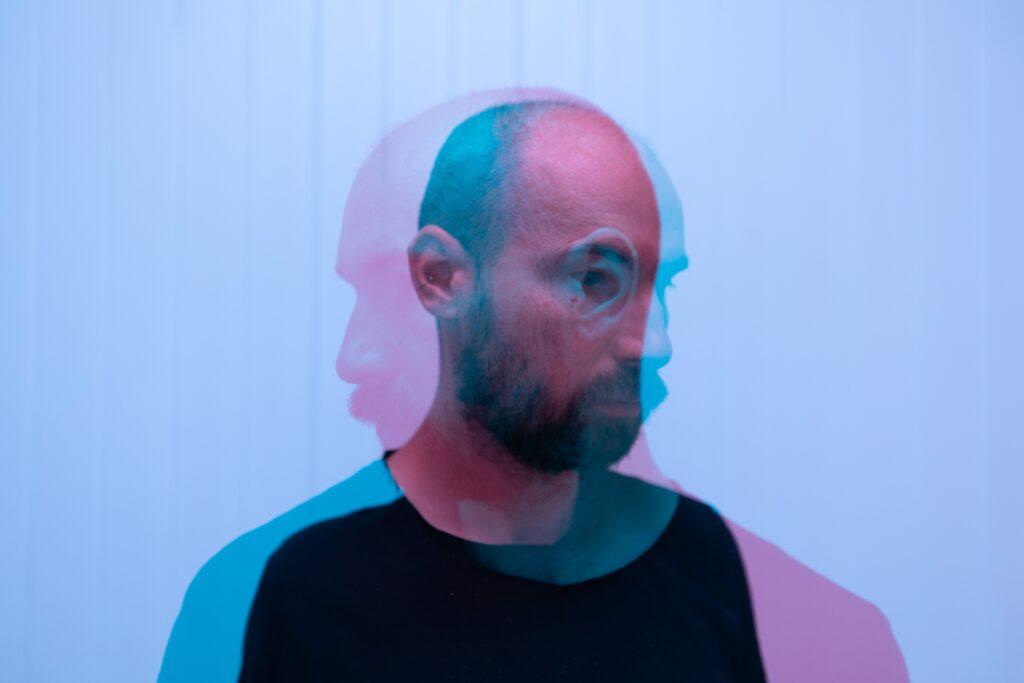
Can You Have BPD And Bipolar?
Yes, an individual can have both Borderline Personality Disorder (BPD) and Bipolar Disorder simultaneously. This is comorbidity, where two or more mental health conditions coexist in the same person. Comorbidity between BPD and Bipolar Disorder is not uncommon, and research suggests there may be a higher prevalence of Bipolar Disorder among individuals with BPD compared to the general population.
When someone has BPD and Bipolar Disorder, their symptoms and experiences can become more complex and challenging to manage. The emotional dysregulation and relationship difficulties associated with BPD can interact with the mood swings and episodes of mania and depression seen in Bipolar Disorder. This comorbidity can increase symptom severity, more significant functional impairment, and a higher risk of self-harm or suicidal behavior.
It is essential for individuals experiencing symptoms of both BPD and Bipolar Disorder to seek professional help from mental health providers experienced in diagnosing and treating comorbid conditions. Comprehensive assessment and an individualized treatment plan can address both disorders’ specific needs and challenges, aiming to improve overall mental health and quality of life.
First-class Facilities & Amenities
World-class High-Quality Addiction & Mental Health Rehabilitation Treatment
Rehab Centers TourRenowned Addiction Centers. Serene Private Facilities. Inpatient rehab programs vary.
Addiction Helpline(844) 597-1011Proven recovery success experience, backed by a Team w/ History of:
15+
Years of Unified Experience
100s
5-Star Reviews Across Our Centers
10K
Recovery Success Stories Across Our Network
- Low Patient to Therapist Ratio
- Onsite Medical Detox Center
- Comprehensive Dual-Diagnosis Treatment
- Complimentary Family & Alumni Programs
- Coaching, Recovery & Personal Development Events
We Level Up BPD Vs Bipolar Treatments
The treatment approaches for Borderline Personality Disorder (BPD) and Bipolar Disorder differ due to each condition’s unique characteristics and symptomatology. Here’s an overview of the treatment options commonly employed for each disorder:
Borderline Personality Disorder (BPD) Treatment:
- Dialectical Behavior Therapy (DBT): DBT is specifically designed for BPD. It focuses on developing skills for emotion regulation, distress tolerance, interpersonal effectiveness, and mindfulness. DBT helps individuals with BPD control their emotions, manage impulsive behaviors, and improve their relationships.
- Individual Psychotherapy: Various forms of individual therapy, such as psychodynamic therapy or cognitive-behavioral therapy (CBT), can be beneficial in treating BPD. These therapies explore underlying issues, address dysfunctional thoughts and behaviors, and promote healthier coping strategies.
- Medication: While there are no specific medications approved for BPD, certain medications such as antidepressants, mood stabilizers, or antipsychotics may be prescribed to target specific symptoms like depression, anxiety, or impulsivity that often co-occur with BPD.
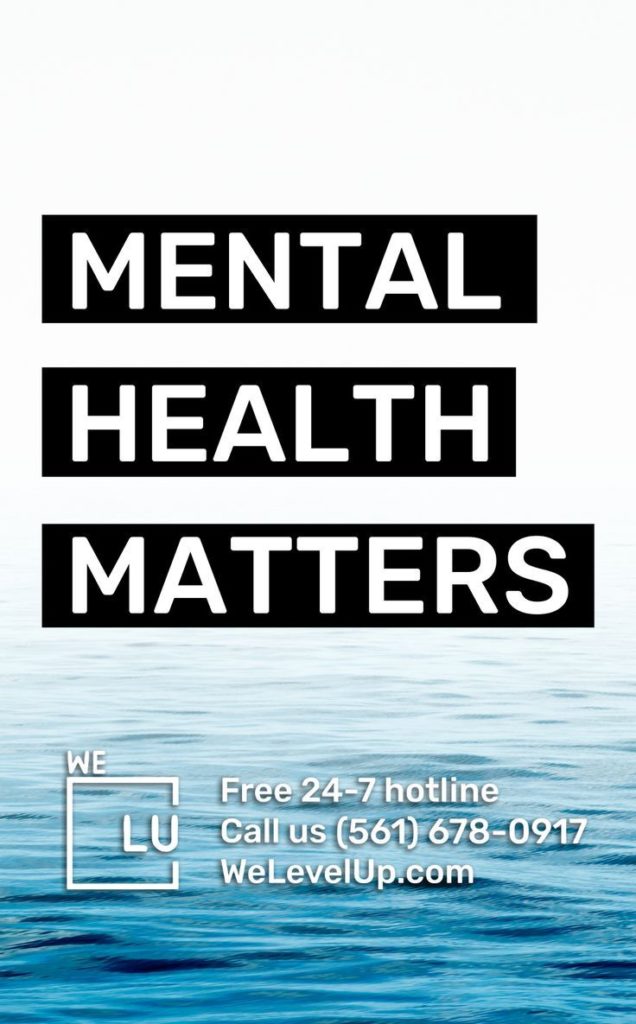
Bipolar Disorder Treatment:
- Medication: Medications play a central role in managing Bipolar Disorder. Mood stabilizers, such as lithium or anticonvulsants, are commonly prescribed to stabilize mood and prevent manic or depressive episodes. Sometimes, antipsychotic medications or antidepressants may be used with mood stabilizers.
- Psychotherapy: Psychotherapy, including Cognitive-Behavioral Therapy (CBT), can be beneficial in managing Bipolar Disorder. It helps individuals recognize and modify unhealthy thought patterns and behaviors, develop coping strategies, and improve overall functioning.
- Lifestyle Modifications: Lifestyle factors like maintaining a regular sleep schedule, managing stress levels, and engaging in healthy habits (exercise, balanced diet, avoiding substance abuse) can contribute to mood stability and overall well-being for individuals with Bipolar Disorder.
We Level Up treatment plans are personalized, considering the individual’s specific symptoms, needs, and preferences. Collaborating with mental health professionals to develop a comprehensive treatment plan is essential for managing both BPD and Bipolar Disorder effectively.
World-class, Accredited, 5-Star Reviewed, Effective Addiction & Mental Health Programs. Complete Behavioral Health Inpatient Rehab, Detox plus Co-occuring Disorders Therapy.
CALL(844) 597-1011End the Addiction Pain. End the Emotional Rollercoaster. Get Your Life Back. Start Drug, Alcohol & Dual Diagnosis Mental Health Treatment Now. Get Free No-obligation Guidance by Substance Abuse Specialists Who Understand Addiction & Mental Health Recovery & Know How to Help.
We Level Up Dual Diagnosis Treatment
At We Level Up, we understand that mental health conditions can often occur concurrently, presenting unique challenges for individuals seeking treatment. Dual diagnosis refers to the coexistence of a substance use disorder and a mental health disorder, such as Borderline Personality Disorder (BPD) or Bipolar Disorder. We recognize the importance of addressing both aspects of dual diagnosis to provide comprehensive care and support for our clients.
Our Dual Diagnosis Treatment Program at We Level Up is specifically designed to meet the complex needs of individuals facing co-occurring disorders. We believe in an integrated and holistic approach that combines evidence-based therapies, medication management, and personalized support to promote lasting recovery.
In our Dual Diagnosis Treatment program, we begin with a thorough assessment conducted by our experienced team of mental health professionals. This assessment helps us understand each individual’s unique circumstances, including their mental health symptoms, substance use patterns, and any underlying factors contributing to their dual diagnosis.
From there, we develop a personalized treatment plan that concurrently addresses both mental health disorders and substance use disorders. Our skilled therapists utilize evidence-based therapies, such as Cognitive-Behavioral Therapy (CBT) and Dialectical Behavior Therapy (DBT), to address the specific challenges and behaviors associated with co-occurring disorders. These therapies aim to enhance coping skills, improve emotional regulation, and promote healthier thinking and behavior patterns.
Medication management is an integral part of our Dual Diagnosis Treatment program, especially when dealing with Bipolar Disorder or other conditions that may require mood stabilizers or other psychotropic medications. Our psychiatrists and medical professionals work closely with clients to assess medication needs, monitor their effectiveness, and ensure the safest and most appropriate medication regimens are in place.
Additionally, we provide a supportive and nurturing environment where individuals can connect with peers who understand the complexities of dual diagnosis. Group therapy sessions and support groups are crucial in our program, allowing individuals to share experiences, gain insights, and build a support network.
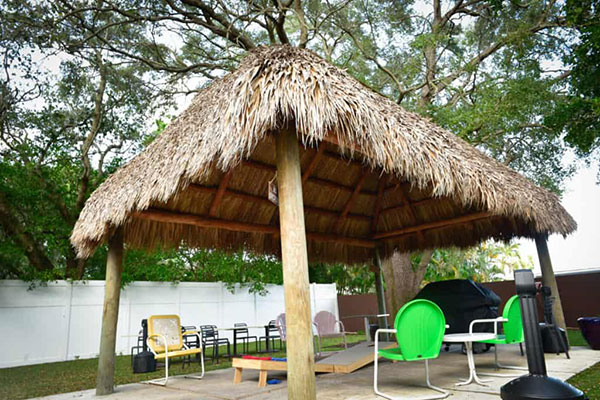
We Level Up Fort Lauderdale
Premier Behavioral Health Treatment Center
Licensed & Accredited w/ 5-star reviews.- Inpatient mental health treatment center
- Therapy for depression, anxiety, trauma, bipolar disorder, PTSD, and more.
- Dual diagnosis rehab programs available
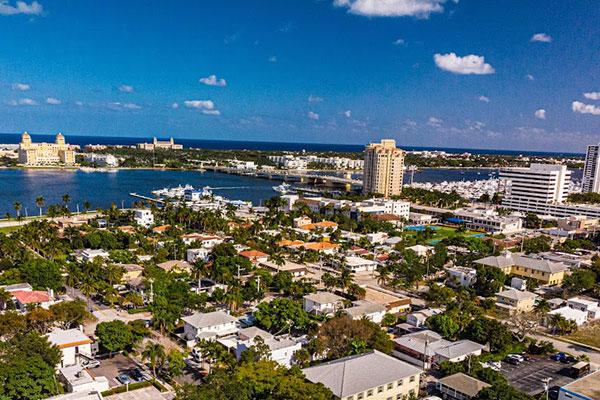
West Palm Beach (coming soon)
Premier Behavioral Health Treatment Center
Coming soon (licensed & accredited.)- Inpatient mental health treatment center
- Therapy for depression, anxiety, trauma, bipolar disorder, PTSD, and more.
- Dual diagnosis rehab programs available

We Level Up Washington
Premier Behavioral Health Treatment Center
Licensed & Accredited w/ 5-star reviews.- Inpatient mental health treatment center
- Therapy for depression, anxiety, trauma, bipolar disorder, PTSD, and more.
- Dual diagnosis rehab programs available
Experience Transformative Recovery at We Level Up Treatment Centers.
See our authentic success stories. Get inspired. Get the help you deserve.
Start a New Life
Begin with a free call to an addiction & behavioral health treatment advisor. Learn more about our dual-diagnosis programs. The We Level Up Treatment Center Network delivers recovery programs that vary by each treatment facility. Call to learn more.
- Personalized Care
- Caring Accountable Staff
- World-class Amenities
- Licensed & Accredited
- Renowned w/ 100s 5-Star Reviews
We’ll Call You
Watch The 8 Steps & Tips for Maintaining Your Mental Wellbeing Informative Video
Video Script
At Level Up, our mental health services are personalized to meet the unique needs of each individual. Our mission is to conduct extensive research and gain a deep understanding of mental health complexities. Our team of compassionate professionals works together to create tailored therapy programs that address the specific challenges and goals of each person we assist. We take pride in our empathetic approach and are dedicated to supporting and guiding everyone toward achieving enhanced well-being.
Search We Level Up BPD Vs Bipolar Resources
Sources
- National Institute of Mental Health (NIMH) – Borderline Personality Disorder: https://www.nimh.nih.gov/health/topics/borderline-personality-disorder/index.shtml
- National Institute of Mental Health (NIMH) – Bipolar Disorder: https://www.nimh.nih.gov/health/topics/bipolar-disorder/index.shtml
- Substance Abuse and Mental Health Services Administration (SAMHSA) – Borderline Personality Disorder Treatment: https://www.samhsa.gov/
- Substance Abuse and Mental Health Services Administration (SAMHSA) – Bipolar Disorder Treatment: https://www.samhsa.gov/find-help/national-helpline
- National Alliance on Mental Illness (NAMI) – Borderline Personality Disorder: https://www.nami.org/About-Mental-Illness/Mental-Health-Conditions/Borderline-Personality-Disorder
- National Alliance on Mental Illness (NAMI) – Bipolar Disorder: https://www.nami.org/About-Mental-Illness/Mental-Health-Conditions/Bipolar-Disorder
- National Institute on Drug Abuse (NIDA) – Co-Occurring Disorders: https://www.drugabuse.gov/publications/research-reports/common-comorbidities-substance-use-disorders/part-1-connection-between-substance-use-disorders-mental-illness
- National Institute on Drug Abuse (NIDA) – Principles of Drug Addiction Treatment: A Research-Based Guide: https://www.drugabuse.gov/publications/principles-drug-addiction-treatment-research-based-guide-third-edition/principles-effective-treatment
- U.S. Department of Health and Human Services (HHS) – Find Treatment: https://findtreatment.gov/
- National Council on Alcoholism and Drug Dependence (NCADD) – Dual Diagnosis: https://www.ncadd.org/about-addiction/mental-health/dual-diagnosis


